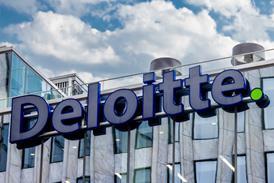Millennials have a responsible attitude to retirement saving, despite pressure to get on the property ladder and pay off student debt, but more than half want more support and information about pensions, a study has found.
The findings from Prudential fly in the face of popular conceptions that younger consumers are unable or unwilling to engage with longer-term saving.
You can't really have a sensible conversation about how much you should put in, without knowing how much you want to get out
Jon Parker, Redington
Saving levels up, but confusion remains
Sixty-nine per cent of under 35s are now saving into a pension, either through work or in personal schemes, the study shows.
Two-thirds have signed up for workplace pension schemes, the study found, underlining the success of auto-enrolment.
While the initiative has increased the number of people saving into a pension, concerns remain regarding confusion over contribution levels.
Earlier this year, the Pensions and Lifetime Savings Association found that 80 per cent of people are not sure they are saving the right amount for retirement and 51 per cent wrongly think the auto-enrolment minimum pension contribution level is the government’s recommended amount.
The Prudential survey showed that 53 per cent of millennials wish their employer would explain pensions and benefits to them. Nearly a quarter said they find pension rules very confusing.
It found that more than two-fifths admit that they do not know if they are on target for retirement saving.
There is a perception that millennials are more concerned about getting on the housing ladder and paying off their student loans than worrying about pensions saving – something that can seem very far away.
However, Prudential’s findings that more than half of the generation would like more support from employers suggests a responsible attitude to retirement planning.
“I think there has been an underestimation of the millennials’ understanding of the need to save for retirement... many have already embarked on that journey,” said Stan Russell, retirement income expert at Prudential.
Millennials understand the need to save
Many millennials recognise they are not saving enough, with 23 per cent saying their current workplace or personal pension contribution is not high enough, according to the study.
This figure “suggests the so-called ‘snowflake generation’ are taking a responsible attitude to retirement”, Russell noted.
For those who are not confident about how much they should be saving, or whether they are on target, financial advice and guidance is a good idea.
“In many cases, professional financial advice is the best route for many to gain a wider understanding of the complexities of the retirement journey,” said Russell. He also stressed the importance of raising awareness of the importance of saving as much as possible as early as possible.
Auto-enrolment has increased millennials’ likelihood of participating in a pension plan. Saving data for eligible employees suggests that by 2015/16 participation in workplace pensions stood at 72 per cent of eligible 22 to 29-year-olds. In 2011/12, before the introduction of auto-enrolment, participation for the then 22 to 29-year-olds was at 36 per cent, according to Pensions Policy Institute research based on government data.
The PPI highlighted that data on opt-outs from auto-enrolment does not suggest that millennials are more likely to opt out than older individuals.
Steven Cameron, pensions director at Aegon, said: “We all have the option to opt out and millennials seem to be the least likely to do so, so at least they’ve not actively rejected the opportunity to start saving early into a workplace pension.”
Clear targets needed
Aegon research last year found that more than 41 per cent of millennials were not aware that they got tax relief on their workplace pension contributions.
“That’s such a fundamental aspect, and it’s such a big benefit, that it’s very alarming that few are aware of that, and we need to rectify that,” Cameron said.
Employer contributions key to AE popularity with millennials
Research has shown that millennials are welcoming auto-enrolment, prompting industry figures to highlight the positive role of employer contributions and the continued need for improved understanding of retirement saving.
Similarly, Russell highlighted “a lack of understanding of pensions and the feeling that more help is needed to understand the complexity of pension rules and tax relief”.
There are several ways in which employers, schemes and providers can help when it comes to clearing confusion and boosting understanding of pensions for all savers.
Getting people to think about what they are aiming for is important, said Jon Parker, director of DC and financial wellbeing consulting at Redington.
“You can’t really have a sensible conversation about how much you should put in, without knowing how much you want to get out,” he said.
Clear goals, such as the PLSA’s proposed retirement income targets, could be helpful here.
Affordability is a key issue. Parker said: “There needs to be that balance between hitting people’s pockets today and ending up with a good retirement income – which is why things have to be gradually brought in over time,” such as increased auto-enrolment minimum contributions.
Natanje Holt, retirement specialist at pension software company Bravura Solutions, said the Prudential figures are interesting because they show a generation of savers who know they should be saving into a pension, “but have less of an idea about how much, where or even why”.

























